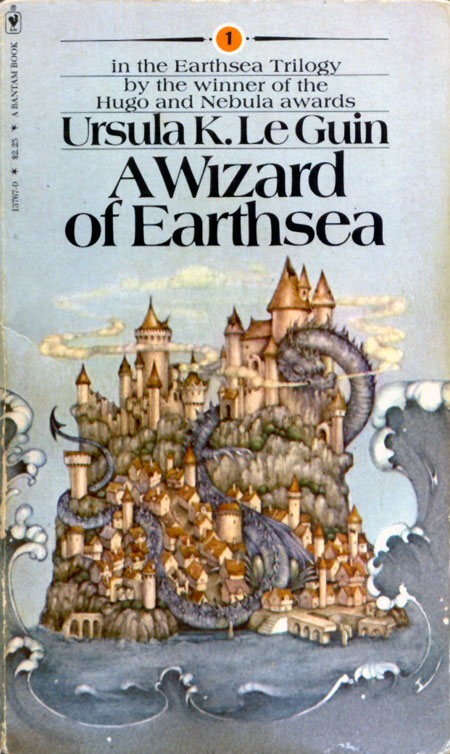Frankenstein: A Fantasy Novel?
Posted by on Wednesday, February 8th, 2012 at 6:11 pmWhile reading through Jones’ chapter on Frankenstein, I was particularly drawn to the section’s discussion on Victor’s laboratory and his relationship with science in general. I immediately grabbed the novel and found my comments scribbled beside the text, specifically the scene of Frankenstein’s monster’s creation: “vague description,” “so I guess electricity is involved somehow?” and “is this even science?”
For a novel that supposedly pioneered an entire genre, aptly named science fiction, there is very little science to be found in Frankenstein. Jones notes that this choice was made either because Shelley did not know how to describe the science involved, or to express “that technology is not the point of the story” (Jones, 19). The scene itself utilizes vague terms such as “materials,” “the instruments of life,” and the repetition of the word, “secret” (Shelley, 35-38). Jones argues that the scene’s description resembles alchemy, painting Frankenstein as an alchemist or mage. Moreover, in his studies, Frankenstein claims to be more interested in the ancient scientists, who dream big (and promise “impossibilities” such as alchemy and immortality), than the “modern masters [who] promise very little” (Shelley, 30). All of this discussion links Frankenstein with figures such as Faust and Prospero as well as Prometheus. So in a way, Frankenstein is, or wants to be, a magician.
“And now for something completely different,” as the folks of Monty Python would say. I want to bring in the genre of fantasy by turning to Ursula Le Guin’s A Wizard of Earthsea. Le Guin is a major science fiction author (no doubt influenced by Mary Shelley), but this novel is one of her forays into fantasy. The novel follows a young wizard named Ged who, after accidentally conjuring a monster or shadow creature in his youth, spends the next stage of his life faced with a number of obstacles while simultaneously avoiding the dark entity he had himself created.
Sound familiar? Despite being rooted in fantasy, Earthsea and its structure resemble Frankenstein. In an act of hubris, each protagonist plays god and creates (whether purposely or accidentally) a monstrous entity that never should have existed. Just as Frankenstein spends the better part of the novel trying to “live his life” while his monster destroys everyone around him, so too does Ged (although he does save his fair share of people). Their turning points even resemble one another. After returning home, Ged reunites with his teacher, who convinces him to pursue his shadow, and suddenly the tables are turned. Frankenstein is not so decisive or confident, but his moment of clarity comes after Elizabeth’s death (or, to a lesser extent, Clerval’s), in which he vows to pursue the monster until one kills the other. Ged is successful in the end, Frankenstein far less so, but one can see the resemblance.
Other parallels exist (Walton even has a counterpart in Earthsea), but I won’t go into them. There are plenty of differences, of course, in content as well as tone and theme. Shelley’s novel humanizes the monster, while for the most part Ged’s shadow remains an abstraction. More importantly, Earthsea is about learning to face your greatest fear (for Ged is able to defeat his shadow in the end, albeit by merging with it), while Frankenstein is more of a cautionary tale.
But despite these differences, Le Guin owes a great debt to Shelley. The point I am trying to make actually ties in perfectly with the reading. If “technology is not the main point of the story,” as Jones argues, then surely one can replace the novel’s science with another force without damaging the story in the slightest. I argue that despite their differences, Le Guin’s novel is an exercise in this viewpoint. Science or magic, both tales follow similar structures and share important themes. With this in mind, arguing that Frankenstein is wholehearted “anti-science” would be akin to arguing that A Wizard of Earthsea is “anti-magic.” The lesson here is not in technology, but in hubris, responsibility, imagination, creation, and a million other abstract terms I will not list here.
In a way, then, with its references to magic and alchemy, Frankenstein helped establish not one genre, but two: science fiction as well as fantasy. Not too shabby.
You can follow any responses to this entry through the RSS 2.0 You can leave a response, or trackback.



You make several excellent points here! Of course, fantasy had been around long before Frankenstein; so arguably had science fiction. I like your comparison between Shelley and LeGuin. In thinking about their differences, I wonder if it would it be fair to say that Frankenstein lends itself to Freud the way that A Wizard of Earthsea does to Jung?
Pingback: Robot Wars - Technoromanticism
Well, this blog posts certainly steals my thunder. I wish I’d read it last week or else waited until tomorrow. I wanted to bring up today–and still will, pending the flow of discussion–the way fantasy and science fiction mingle in Frankenstein. How maybe it doesn’t matter whether the animating juice is technological or mystical and to explore what that means. The story of a person bringing to life a monster and then regretting the consequences is not new or unique. But is there a modern day switch from magic to tech? (Perhaps not, but maybe.) Does the switch matter? What does that say about how we view technology? And how we view magic?
Pingback: lustro piotrków trybunalski